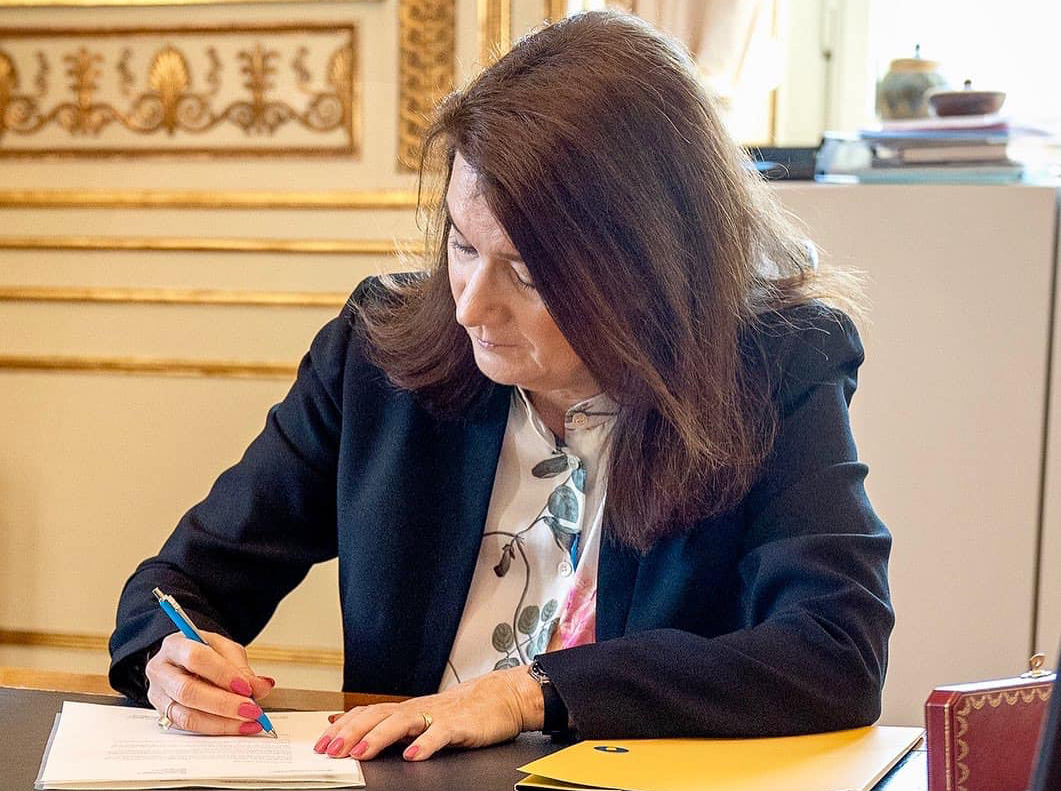Sweden’s Foreign Minister Ann Linde signed on Tuesday her country’s official request to join the NATO defense alliance, thereby ending two centuries of Swedish neutrality.
“We feel we have made the best possible decision for Sweden,” Linde said during the signing ceremony. The official application will now be forwarded to NATO Secretary General Jens Stoltenberg.
Swedish Prime Minister Magdalena Andersson announced on Monday that the Swedish government had decided to apply to join NATO. During the day, a parliamentary debate was held in which almost all parties supported Swedish NATO membership.
The Social Democratic Party, which governs Sweden, said a day earlier on Sunday that it supported the Scandinavian country’s accession to NATO. At the time, Ann Linde said in a Twitter message that the party had made a historic decision that was justified by the deterioration of the security situation in Sweden and throughout Europe as a result of Russia’s invasion of Ukraine.
On Tuesday, the Finnish parliament also approved a proposal to join the alliance by 188 votes to 8 in favor of Finland’s application — Helsinki thus followed Sweden’s decision last week to join the defense organization.
Finnish President Sauli Niinistö visited Stockholm on Tuesday where he met with Swedish Prime Minister Magdalena Andersson. At a joint press conference, Andersson announced that the two countries are planning to go through the process “hand in hand,” indicating they will submit their formal applications to join NATO on Wednesday at the same time.
Backtracking on Moscow’s previous position, Russian Foreign Minister Sergei Lavrov responded to the Finnish parliament’s vote on Tuesday by saying that Sweden’s and Finland’s accession to NATO would “not change anything,” as the two countries had long been involved in NATO’s military exercises.
Speaking to the Swedish parliament, the Finnish president also said that a “constructive dialogue” could help to stop Turkey from boycotting the two countries’ accession to NATO.
Most NATO members support the inclusion of the two Scandinavian countries as soon as possible, but Turkey’s reservations could make the process more difficult.






